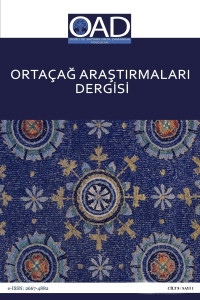Research Articles
Book Review
Translate Article
CORRECTION/ERRATUM ARTICLE
Issue Editorial Board
 0000-0001-9147-2967
0000-0001-9147-2967

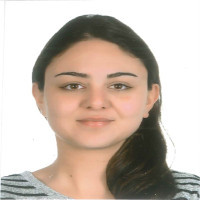

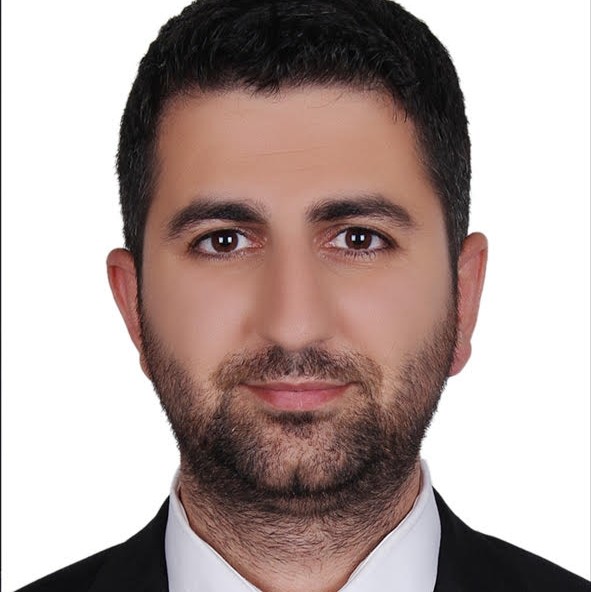

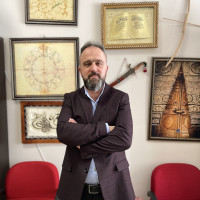



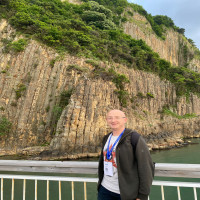
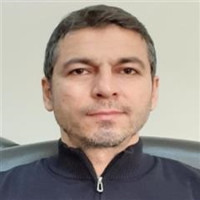

 0000-0002-7025-399X
0000-0002-7025-399X

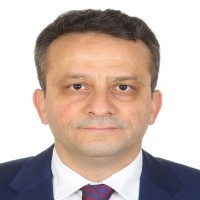
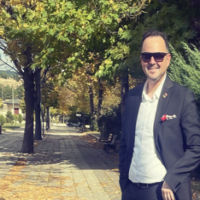
Aim & Scope
The aim of the Ortacag Arastimalari Dergisi is to be among the priority journals that are published in regular intervals and preferred in the field of Medieval History, in accordance with scientific norms and scientific ethics, by rigorously evaluating qualified and original studies in the field of Medieval History.
"One of the aims of this journal is to share scientifically the information (Archaeology, Art History, History,etc.) produced especially in Türkiye in the field of the Middle Ages."
-Our journal covers all events that shape history by affecting the Eastern World and the Western World politically, socially, economically and culturally within a long period of time such as the Middle Ages.
-The Journal of Medieval Studies aims to contribute to the publication of academic studies that can reveal the political, social, economic and cultural development in the Eastern and Western world in the Middle Ages, which is a very important transition period of history.
-Within this framework, the journal can adopt the publication of some issues as publication topics.
-Articles published in this framework are based entirely on scientific research.
-There are at least one resource analysis in each issue, book promotions and translations (with the approval of the authors).
-The journal carries an electronic feature and every copy is made accessible to the internet.
-The journal, which does not have an organic connection with any institution and organization, publishes articles of all researchers interested in the history of the Middle Ages, with the scientific and legal responsibility of the opinions in the published studies.
Subject Category
Social Science
- LC Category: Social Sciences (General)
- LC Category: Philosophy. Psychology. Religion
- Cultural Studies (Medieval Culture)
- Archeology, Regional Studies, Cultural Studies, Other Subjects of Social Sciences
Art & Humanities
- History (Medieval History)
- Literature (Medieval Literature)
- Philosophy (Medieval Philosophy)
- Art (Medieval Art)
- Logic (Medieval Logic Studies and Reflections)
- Archeology (Roman-Byzantine and Medieval Archeology)
- Religion (Research on Medieval Islamic History and Related Sciences)
- Library of Congress/LCC Subject Category: History and European History, Associated Sciences (General)
Keywords
- Medieval
- Religion
- Philosophy
- History
- Sociology-Psychology
- Literature
- History of art
- Archaeology
- Medieval History (Other)
- Islamic History and Civilization
- Turkish Islamic Intellectual History
- History of Turkish Islamic States
- Seljuk History
- Late Roman History
- Medieval Cities
- Medieval Folk Culture
- Medieval European History
- Medieval Asian History
- Byzantine History
- Central Asian History
- Turkish Steppe Culture
- Pre-Islamic Turkish History
- Medieval Archeology
- Islamic Geography Archeology
- Seljuk Archeology
- Greek and Roman Archeology
- Medieval Philosophy
- Turkish Islamic Thought
- Islamic Philosophy
- Logic
- Society and Culture
- Christian Studies
- Judaism Studies
- Medieval Eastern and Western Literature
Author Guidelines
Submission Dates
Issue of June: January 01 - May 01 | Issue of December: July 01 - November 01Writing Manuscript
Authors of original research should address the topic in an original way and an objective discussion. A paper should contain sufficient detail and references to permit others to replicate the work. Fraudulent or knowingly inaccurate statements constitute unethical behavior and are unacceptable. Short and long summaries and articles in English must be written in either United Kingdom English or United States (USA) English.OAD ARTICLE TEMPLATE I OAD AUTHOR FORM I COPYRIGHT AGREEMENT
Originality
The author must provide assurance that the article is original, has not been previously published elsewhere, and is not under consideration for publication elsewhere, in another language.Originality of Sources
Authors should ensure that they are writing a completely original paper and that if they have used the work or words of others, it is appropriately cited. Privately obtained information, such as in conversations, correspondence, or discussions with third parties, should not be used without the express and written permission of the source.Data Access and Retention
Authors may be asked to provide the research data supporting their paper for editorial review and/or to comply with the open data requirements of the journal. Authors should be prepared to provide public access to such data, if practicable, and should be prepared to retain such data for a reasonable number of years after publication. The Ortacag arastirmalari Dergisi recommends uploading research data to TUBITAK's Aperta Portal.Multiple and Concurrent Publication
An author should not publish an article containing the same research in more than one journal. Submitting the same article to more than one journal at the same time is unethical behavior. An author should not submit a previously published article for consideration in another journal, except in the form of an abstract.Publication of research that involve human subjects (i.e., surveys and interviews)
For research conducted in all branches of science that requires ethics committee approval (ethics committee approval should be obtained, this approval should be stated and documented in the article. In research that requires ethics committee permission, information about the permission (name of the committee, date, and number) is in the method section, and also on one of the first/last pages of the article; In case of reports, information about signing the informed consent/consent form should be included in the article.Competing Interests
Conflict of Interest is any financial or other interest that may conflict with one's work, significantly impair objectivity, or provide an unfair advantage to any person or organization. All authors must disclose in their writing any financial and personal relationships with individuals or organizations that may be seen to improperly influence their work. All financial support resources and the role of sponsors in the study should be explained during the conduct of the research and the preparation of the article. If there is no source of funding, this should also be stated. Examples of potential conflicts of interest that need to be disclosed include consultations, hiring, and grants. Potential conflicts of interest should be disclosed at the earliest possible stage.Notification of Errors
When an author notices a material error or inaccuracy in his published work, he should notify the journal immediately. It is also the author's obligation to cooperate in retracting or correcting the article if deemed necessary by the editor. If the editor or publisher learns from a third party that a published work contains errors, it is the author's obligation to cooperate with the editor, including notifying the editor.Image Integrity
It is not acceptable to enhance, obscure, move, remove, or introduce a specific feature within an image. Authors must abide by the policy for graphic images enforced by the journal.Manuscript Preparation
- Language: Turkish or English
- The language of the journal is Turkey Turkish and English.
- Types of Article: Research Article – Book Review
- The Journal publishes Research Papers and Book Reviews. There is no word limit for research papers. However, we advise the authors to make the work as concise as possible for dissemination.
- Article Format: MS Word Template
- Image Format: JPEG: minimum of 300 dpi
- Bibliography Style: CHIGACO Citation Style
- Authors are required to carefully review the list and order of authors before submitting their manuscript and to provide the definitive list of authors at the time of original submission
Citation Style
The Ortacag arastirmalari Dergisi requires writers to use the CHIGACO Citation Style. In the field of science, CHIGACO footnote or in-text system, whichever is widely used, can be preferred. CHIGACO Citation Style (PDF)Submission checklist
It is hoped that this list will be useful during the final checking of an article prior to sending it to the journal's Editor for review.- Author information added.
- E-mail address
- Full mailing address
- Phone number
- All necessary files have been uploaded
- Article text
- Copyright Agreement
- The manuscript has been "spellchecked" and "grammar-checked"
- All references mentioned in the Reference list are cited in the text, and vice versa.
Submit Manuscript
The account of the corresponding author of the manuscript should be used in the applications. All correspondence regarding the application is forwarded to the responsible author via e-mail sent through the journal system. When uploading the file of the main text of the article, make sure that this file does not contain any elements that decipher the identity of the author, due to the double-blind peer review process.Submission URL: https://dergipark.org.tr/tr/journal/2725/submission/step/manuscript/new
Files You Need To Download Separately: Manuscript Full Text | Copyright Form | Author Form
Keeping track of your submission
You can keep track of your manuscript throughout the process by going to your author area in Journal System. Here it will list for you manuscripts you have submitted under "Submitted manuscripts". If your manuscript is sent for external peer review, you will find reviewers' comments in the decision letter. Please click on "Manuscripts with decision" and click on "View decision letter."Ethical Principles and Publication Policy
Ethical Principles and Publication Policy
The journal adheres to national and international standards in research and publication ethics. It complies with the Press Law (a), the Law on Intellectual and Artistic Works (b), and the Regulation on Scientific Research and Publication Ethics in Higher Education Institutions (c). It has also committed to upholding the highest standards of publication ethics and pays regard to Principles of Transparency and Best Practice in Scholarly Publishing (d) published by the Committee on Publication Ethics (COPE), the Directory of Open Access Journals (DOAJ), the Open Access Scholarly Publishers Association (OASPA), and the World Association of Medical Editors (WAME).
The press law has been published on the Official Gazette in Turkey on 26 June 2004. The purpose of the press law is to arrange freedom of the press and the implementation of this freedom.
The Law on Intellectual and Artistic Works has been published in the Official Gazette in Turkey on 13 December 1951.
The Regulation on Scientific Research and Publication Ethics in Higher Education Institutions has been gone into effect with General Assembly Resolution numbered 2016.23.497,
Principles of Transparency and Best Practice in Scholarly Publishing,
Publication of research that involve human subjects (i.e., surveys and interviews)
Ortacag Arastirmalari Dergisi adopts the "Code of Conduct and Best Practice Guidelines for Journal Editors" and "Code of Conduct for Journal Publishers" of the Publication Ethics Committee (COPE) in order to create ethical assurance in scientific periodicals. In this context, the following points should be followed in the manuscripts submitted to the journal:
Correction, Retraction, Expression of Concern
Editor should consider publishing correction if minor errors that do not effect the results, interpretations and conclusions of the published paper are detected. Editor should consider retraction if major errors and/or misconduction that invalidate results and conclusions are detected. Editor should consider issuing an expression of concern if there is evidence of research or publication misconduct by the authors; there is evidence that the findings are not reliable and institutions of the authors do not investigate the case or the possible investigation seems to be unfair or nonconclusive. The guidelines of COPE and ICJME are taken into consideration regarding correction, retractions or expression of concern.
Plagiarism Action Plan and Journal Precautions
The journal respects intellectual property and aims to protect and promote the original work of its authors. Articles containing plagiarism are against the standards of quality, research, and innovation. Therefore, all authors who submit articles to the journal are expected to comply with ethical standards and avoid plagiarism in any form. If an author is suspected of plagiarism in a submitted or published article, the journal's Ethics Editor reviews the work first. This work is then reviewed by the Editorial Board. The Journal then contacts the author(s) to submit their comments within two weeks. If the journal does not receive any response from the author within the specified time, it requests the investigation of the claim by contacting the university to which the author is affiliated. The journal will take the following serious precautions against published articles that are found to contain plagiarism.
1. The journal will immediately contact the university to which the author(s) are affiliated, in order to take final action against the related author.
2. The journal will remove the PDF copy of the published article from its website and disable all links to the full-text article. The phrase Plagiarized Article will be added to the title of the published article.
3. The journal will disable the author's account and reject all future submissions by the author for a period of 3 years.
This journal checks for plagiarism
Submitted manuscripts that pass preliminary control are scanned for plagiarism using Intihal.Net software. If plagiarism/self-plagiarism will be found authors will be informed. Editors may resubmit the manuscript for similarity check at any peer-review or production stage if required. High similarity scores may lead to rejection of a manuscript before and even after acceptance. The percentage of similarity score taken from each article, the overall similarity score is generally expected to be less than 15%.
Plagiarism Policy
All articles are checked by means of a program in order to confirm they are not published before and avoid plagiarism.
Plagiarism Policy
All articles are checked by means of a program in order to confirm they are not published before and avoid plagiarism.
Publication Ethics
Publication Ethics can be defined as a self-regulatory mechanism that insists on integrity on behalf of authors, reviewers, and publishers to establish higher standards of editorial processing. Ethical standards for publication exist to ensure high-quality scientific publications, public trust in scientific findings, and respect for people's opinions.
a) Press Law (National Legislation)
b)Law on Intellectual and Artistic Works (National Legislation)
d) Transparency and Best Practice in Academic Publishing
Duplicate Publication
The Journal of Medieval Studies accepts only one publication by an author within a year, whether it is accepted or the article has not passed the internal evaluation and referee process. In order to submit a publication to the Journal of Medieval Studies, at least three (3) issues of the journal must have been published after the submission date. Articles submitted without paying attention to this issue may be rejected directly by the editor without being evaluated.
Simultaneous submission of manuscripts
Publication Check for Plagiarism
Data fabrication and falsification
Human participants
Addressing Allegations of Research Misconduct
Complaints
Research Ethics
- Principles of integrity, quality, and transparency should be sustained in designing the research, reviewing the design, and conducting the research.
- The research team and participants should be fully informed about the aim, methods, possible uses and requirements of the research, and risks of participation in research.
- The confidentiality of the information provided by the research participants and the confidentiality of the respondents should be ensured. The research should be designed to protect the autonomy and dignity of the participants.
- Research participants should participate in the research voluntarily, not under any coercion.
- Any possible harm to participants must be avoided. The research should be planned in such a way that the participants are not at risk.
- The independence of research must be clear; any conflict of interest or must be disclosed.
- In experimental studies with human subjects, written informed consent of the participants who decide to participate in the research must be obtained. In the case of children and those under wardship or with confirmed insanity, the legal custodian’s assent must be obtained.
- If the study is to be carried out in any institution or organization, approval must be obtained from this institution or organization.
- In studies with a human subject, it must be noted in the method’s section of the manuscript that the informed consent of the participants and ethics committee approval from the institution where the study has been conducted have been obtained.
Open Access Policy
Each issue is forwarded to libraries and international indexing institutions within one month after its publication.
Processing Charges
Plagiarism Detection
How to spot authorship problems Suspected ghost, guest or gift authorship Suspected plagiarism in a submitted manuscript
The review process for papers
The study is reviewed by the editor for compliance with the journal publication principles, academic writing rules, and the Chigaco 17 Citation Style and it is scanned about plagiarism by using the TURNITIN program. Placenta similarity rate to be less than %15 condition required. This review is completed in a maximum of 15 days.
The works which are passed through the referees are examined by Language Editor and if necessary the author is asked for correction. The inspection process is completed within a maximum of 15 days.
English Language Control:
Price Policy
There are NO PUBLICATION FEES (article processing charges or APCs) to publish with this journal.
Ortacag Arastirmalari Dergisi is an open-access, peer-reviewed scientific e-journal that publishes research articles that will contribute to the field of Medieval History twice a year, in June and December. All charges of the Ortacag Arastirmalari Dergisi are covered by Dergipark. The publication of articles and the execution of article processes in the journal are free of charge. No processing fee or submission fee is charged under any other names (editorial processing charges, language editing fees, colour charges, submission fees, page charges, membership fees, print subscription costs, or other supplementary charges). As part of its publication policies, Ortacag Arastirmalari Dergisi does not accept sponsorship or advertisements.
Articles published in Ortaçağ Araştırmaları Dergisi are licensed under a Creative Commons Attribution-NonCommercial 4.0 International License (CC BY-NC 4.0). Ortaçağ Araştırmaları Dergisi provides immediate open-access to its content, reflecting its conviction in advancing global knowledge exchange. The opinions presented in the articles are the sole responsibility of their respective authors and do not present the view or opinions of Ortaçağ Araştırmaları Dergisi. Terms of Use & Privacy Policy

